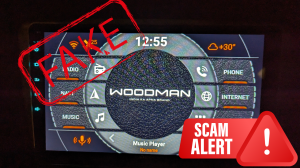When you shop for digital cameras these days, the state of the art seems pretty impressive. Most DSLR cameras are weighing in at 12 to 16 megapixels now, and even the little point-and-shoot devices are starting to break the double digits. It’s interesting, then, that the quality of images you see every day on the web hasn’t gotten much better recently. There’s a simple answer for that, of course, and it’s this: megapixels aren’t really that important.
This sounds ludicrous up front, so here are some numbers to back it up. Most images on the web are 72 DPI, and most printed images are 4” x 6” or 5” x 7”. A web image at 3 MP would be 28” x 21”, and a print image at 300 DPI from that same 3 MP camera would be just shy of 5” x 7”. The long and short of this is that even fairly antiquated 3 MP cameras are good enough for most jobs.
David Pogue, who writes technology for the New York Times, did a study involving blown-up prints from a 5 megapixel, an 8 megapixel, and a 13 megapixel camera. He asked people in Times Square if they could tell the difference between the prints. In 45 minutes of talking to the crowd, only one person put the prints in the correct order—and she was a photography professor. Most people couldn’t even tell the difference between one print and another.
But wait, you’re probably saying, don’t I get something when I buy a camera with more megapixels? Chances are, you probably do. A number of these cameras are more expensive than the field, and have a few other bells and whistles that come along with a “fancier” line. What you’re not guaranteed to get, however is a higher-quality shot.
It’s the User, Not the Megapixels
The issues that make one digital image better than another are varied, but none of them have to do with megapixels. In fact, the biggest issue of all is the user. Many digital camera users fail to focus properly, or shoot with an unsteady hand. Thankfully, a number of high-end cameras now include vibration reduction (VR) systems and image stabilization (IR). Even the sturdiest tripod gets blown around in the wind sometimes, and these tools could be a lifesaver if you find yourself shooting blurry pictures.
There are other user-related image quality issues, of course. Some users don’t know how to take proper care of their equipment, and others lack an understanding of the basics of composition. If you’re afraid you fall into one of these categories, there are a number of web tutorials for beginners to help you.
Equipment vs. Megapixels
Other issues revolve around the equipment, but aren’t related to the megapixel question. A low-quality lens, for example, will always result in poor images, no matter the resolution of the camera.
The sensors, however, are the largest technological issue. A smaller sensor results in less information captured from the camera, which means the pixels are smaller—they carry less accurate information about the image. Larger sensors usually result in larger pixels, and that results in realistic sharpness and color. Sensor size also affects lens shape, in that larger sensors result in lenses that have longer focal lengths. This also affects the effective pixel size.
The goal for any camera consumer should be to get the best possible sensor-lens combination, which will maximize the pixel size and quality. Cambridge in Colour has a great guide to sensor sizes and lenses, which is a great reference for anyone who wants an in-depth discussion of the specifics.
One Last Caveat
Not all large sensors are created equal. The sensor production process makes a significant difference in the quality of these products, not to mention internal components and software. Most modern high-end digital camera offerings have a good sensor-lens combo, but it’s best to do some homework before purchasing even the “nicest” camera on the market.















1 Comment